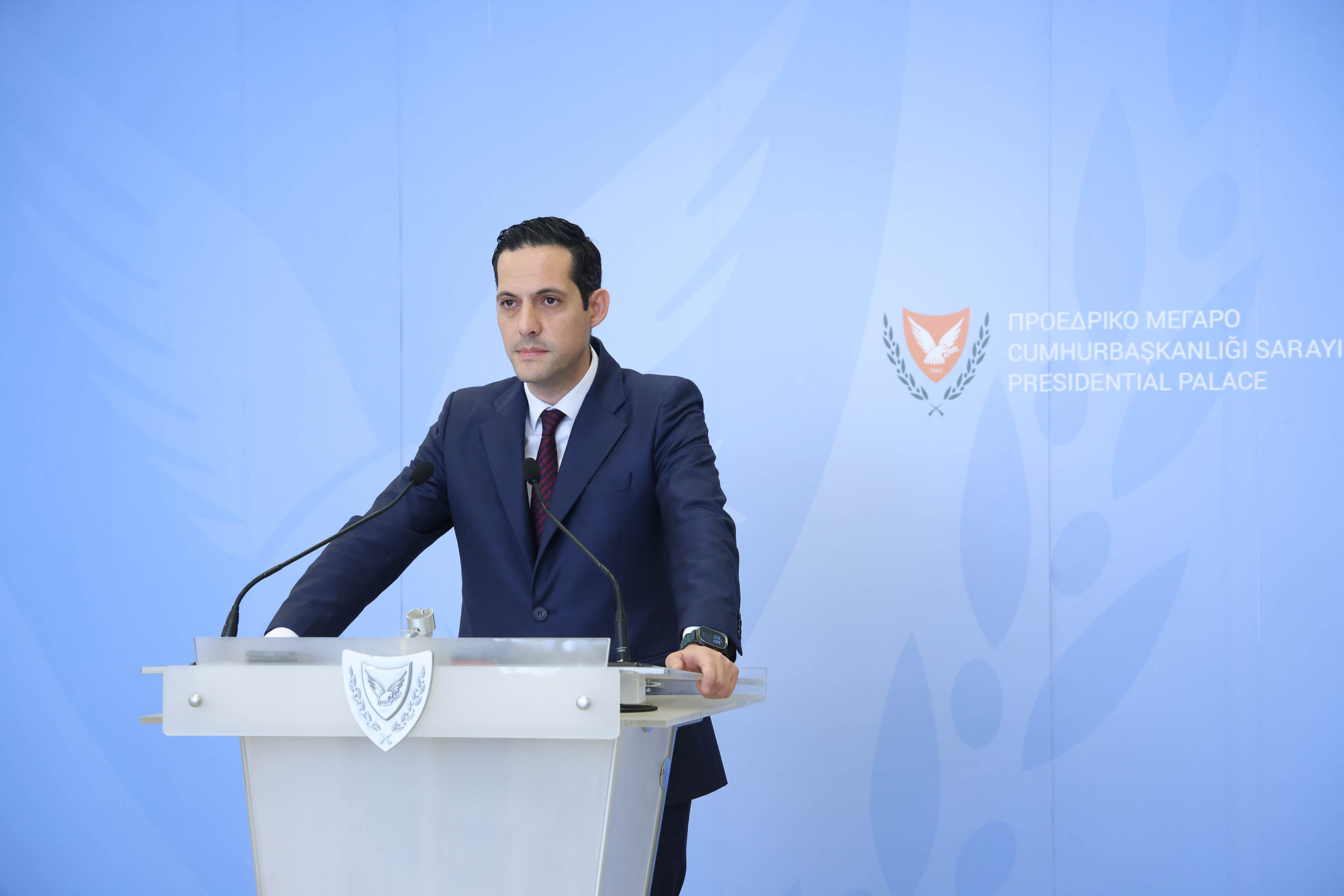Turkish President Recep Tayyip Erdogan’s alleged castigation of Turkish Cypriots’ “impudence” and not knowing their limits over the north’s ongoing “headscarf crisis” is proof that Cyprus’ future will be brighter with a federal solution to the Cyprus problem, government spokesman Konstantinos Letymbiotis said on Thursday.
Erdogan reportedly made the comments at a meeting of his AK Party’s central administration in reaction to ongoing protests against the north’s ruling coalition’s decision to legalise the wearing of hijabs by children at public schools, and teachers’ refusal to apply the law in question, reportedly adding “if you don’t come down hard on this lot, they don’t know their limits”.
Asked to comment on the matter by journalists at the presidential palace, Letymbiotis stressed that in the government’s view, the ultimate way to resolve such disputes is a federal solution to the Cyprus problem.
“It is something that we have repeatedly stated, as the homeland of Greek Cypriots and Turkish Cypriots, that we do not wish, nor can it be acceptable, for a European Union member state to be under the hegemony of anyone,” he began.
“It is precisely these statements which are attributed to Erdogan, who proves right what we send as a message to our Turkish Cypriot compatriots, that the independence and prosperity of Cyprus and the independence and prosperity of the citizens of the Republic of Cyprus, the future of the Republic of Cyprus, can be more optimistic through the resolution of the Cyprus problem.”
Such a solution, he said, must be found “on the basis of the agreed framework, the bizonal, bicommunal federation, as defined in the United Nations security council’s resolutions, without anachronistic guarantees, without guarantor powers, and without interventionist rights”.
He added that the government is, “as a member state of the EU, of course in contact with our European partners, and has informed them of these latest developments through diplomatic channels”.
Erdogan has also promised to “give the necessary messages” during his upcoming visit to Cyprus at the beginning of the month.
The visit had been in the pipeline long before protests against the legalisation of hijabs at public schools became a serious political issue in the north, with the trip planned to coincide with the opening of Turkish Cypriot leader Ersin Tatar’s official residence on May 3.
However, in recent weeks, 13,000 Turkish Cypriots have marched through the streets of northern Nicosia in opposition to the law, with fires having been lit in protest against the law every weeknight since April 14.
Teachers and their supporters have set the ruling coalition a deadline of April 28 to change the law back to how it was, lest their measures escalate, with a general strike being talked about by opposition political parties and trade unions.
Frustration over the ongoing stalemate has been tangible in Ankara, with Oktay Saral, one of Erdogan’s top advisors, having taken to Twitter last week to attack the north’s ‘prime minister’ Unal Ustel over his handling of the matter.
Saral tweeted a video of Ustel speaking in ‘parliament’ last week about how he had been “saddened” by the heightening of rhetoric over the matter.
In that speech, Ustel had made specific reference to Ibrahim Damar, the imam of the mosque in the northern Nicosia suburb of Mandres, who had described teachers opposed to hijabs as “infidels” and said he would refuse to lead a funeral service for “anyone who opposes headscarves”.
“First of all, a friend of ours in the religious department made different speeches. First of all, I want you to know that we have removed the friend who is in the religious department. After the investigation is completed, the necessary punishment will be given,” he said.
“We did not do nothing while social media attacks were being made against the people of Cyprus, against people from all sides. All of them have been reported to the people because we want reconciliation in society.”
Saral was less than impressed by this speech, and described Ustel as a “bosbakan”, a play on the word “basbakan”, which means “prime minister” in Turkish, with “bos” meaning “empty”.
“The TRNC’s empty minister did not speak nicely, he just babbled on. Should the Imam be hostile towards the headscarf?” he said.
“What a shame, we could not save Cyprus from Greek Cypriot-ness”.






Click here to change your cookie preferences